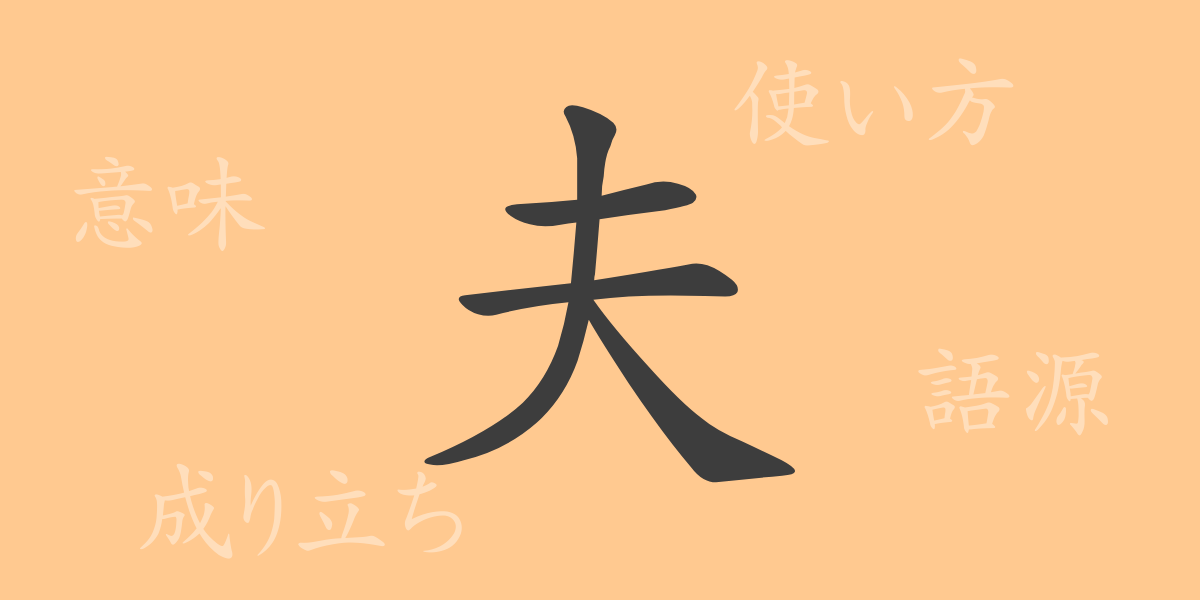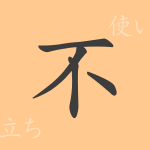The beauty of the Japanese language lies in its complexity and delicacy. Particularly, kanji (漢字) are renowned for their rich shapes and meanings. In this article, we shine a spotlight on the commonly used kanji “夫” (fu), delving into its profound world. From its etymology to its meanings, usages, and even idioms and proverbs, we will unravel the full scope of this single character.
The Origin (語源) of “夫” (fu)
The origin of the kanji “夫” (fu) can be traced back to ancient pictographs. This character was originally depicted as a large human figure. Over time, it came to mean “adult male,” and eventually evolved to signify “husband.” Thus, “夫” (fu) has become established as a kanji symbolizing the role of men in the family and society.
Meanings and Usages of “夫” (fu)
While the kanji “夫” (fu) means “male spouse,” its usage extends beyond this. It can also function as a demonstrative pronoun meaning “a certain person” or “a certain thing.” Additionally, in the form “夫れ” (sore), it can mean “that” or “the aforementioned.” It is also commonly used to emphasize, as in “precisely that.” In this way, “夫” (fu) is a kanji used in various contexts in the Japanese language.
Readings, Stroke Count, and Radical of “夫” (fu)
The kanji “夫” (fu) draws attention for its readings and structure.
- Readings: In On’yomi (音読み), it is read as “fu.” In Kun’yomi (訓読み), it is read as “otto,” “sore,” and “so.”
- Stroke Count: “夫” (fu) is a 4-stroke kanji.
- Radical: The radical of this kanji is “大” (dai).
Idioms, Proverbs, and Phrases Using “夫” (fu)
Idioms, proverbs, and phrases containing “夫” (fu) are deeply rooted in the Japanese language. For example, “夫婦” (fuufu) refers to a husband and wife, symbolizing the closest relationship. “夫唱婦随” (fushoufuzui) is a four-character idiom meaning the husband leads and the wife follows. Additionally, the idiom “夫れこれ幸い” (sorekoresaiwai) expresses gratitude or satisfaction, meaning “there is no greater happiness than this.” These expressions demonstrate the expansive meanings that the kanji “夫” (fu) holds.
Summary of “夫” (fu)
The meanings embedded in a single kanji are vast, influenced by its usage and cultural background. The kanji “夫” (fu) is no exception, blending into our lives in various forms, from ancient pictographs to modern Japanese society. Beyond signifying a male spouse, it serves as a demonstrative pronoun and plays a crucial role in expressing emotions and relationships, as seen in numerous idioms, proverbs, and phrases. We hope this article has helped you appreciate the multifaceted nature of “夫” (fu).

























